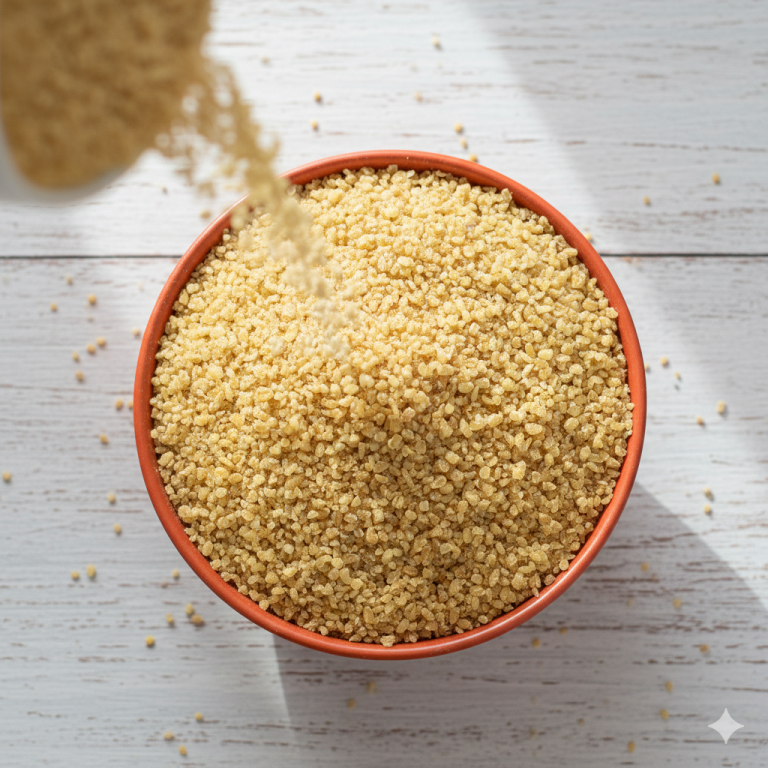Types of Plant-Based Milk: Benefits and Properties
Do you know the different types of plant-based milk? In recent years, the consumption of plant-based milks has grown significantly, driven by ethical reasons, such as animal welfare, as well as health and environmental sustainability concerns. These alternatives to cow’s milk have gained popularity among those following vegan or vegetarian diets, or among individuals with food intolerances. However, with so many options available on the market, choosing the most suitable one can be overwhelming. Did you know that each type of plant-based milk offers different nutrients and can meet various nutritional needs?
What Is Plant-Based Milk?
Plant-based milk is a beverage derived from various plant sources, such as nuts, grains, seeds, or legumes. These alternatives to cow’s milk are not only suitable for those who cannot or choose not to consume dairy but are often low in saturated fats, cholesterol-free, and rich in essential nutrients. Best of all, the wide range of plant-based ingredients means there’s a milk to suit every taste and need.
Main Types of Plant-Based Milk
Here’s an overview of the most common types of plant-based milk, highlighting their properties, benefits, and nutritional contributions.
1. Almond Milk
Almond milk is one of the most popular plant-based milks worldwide, thanks to its mild, slightly sweet flavor. It is made by blending ground almonds with water and is often fortified with vitamins and minerals to enhance its nutritional profile.
- Properties: Low in calories, free of saturated fats and cholesterol. Rich in vitamin E, an antioxidant that combats free radicals and promotes skin health.
- Benefits: Ideal for weight management due to its low calorie content. Supports skin health and helps prevent premature aging thanks to its vitamin E content. Suitable for lactose-intolerant individuals or those avoiding animal products.
- Key Nutrients:
- Vitamin E: Essential for skin and cellular health.
- Calcium (fortified): Supports bone strength.
- Magnesium: Important for muscle function and heart health.
2. Oat Milk
Oat milk has seen a surge in popularity in recent years due to its creamy texture and nutritional profile. It is made by blending whole oats with water, often with added enzymes to break down starches for a smoother consistency.
- Properties: High in soluble fiber, making it beneficial for digestive health and blood sugar regulation. Contains beta-glucans, a type of fiber that can lower LDL («bad») cholesterol, promoting cardiovascular health.
- Benefits: Improves digestion through its fiber content. Helps lower cholesterol, benefiting heart health. Suitable for lactose-intolerant individuals or those with nut allergies.
- Key Nutrients:
- Soluble Fiber: Supports digestive health and regulates blood sugar levels.
- Beta-Glucans: Reduces cholesterol and supports cardiovascular health.
- Iron: Vital for red blood cell production.
3. Soy Milk
Soy milk is one of the oldest and best-known plant-based milk alternatives. Made from soybeans, it has a nutritional profile similar to cow’s milk, making it an excellent source of plant-based protein.
- Properties: Rich in high-quality proteins comparable to animal sources. Contains phytoestrogens, natural compounds in soy that may have hormonal health benefits, particularly for menopausal women.
- Benefits: Provides a significant amount of protein, ideal for vegans and vegetarians. Phytoestrogens may alleviate menopause symptoms. Low in saturated fats and cholesterol, promoting heart health.
- Key Nutrients:
- Complete Proteins: Supplies all essential amino acids.
- Omega-3 Fatty Acids: Supports heart health.
- Calcium (fortified): Essential for bone health.
4. Coconut Milk
Coconut milk is a creamy and flavorful option made by blending coconut pulp with water. Its rich texture and tropical taste make it popular in cooking, particularly in desserts and Asian dishes.
- Properties: High in saturated fats, primarily medium-chain triglycerides (MCTs), which are quickly metabolized for energy. A good source of potassium, essential for fluid balance.
- Benefits: MCTs provide quick energy, making it suitable for active individuals. Its potassium content helps maintain electrolyte balance and hydration. Ideal for recipes requiring a creamy texture without dairy.
- Key Nutrients:
- MCTs: Offer quick, easily digestible energy.
- Potassium: Crucial for fluid balance and muscle health.
- Iron: Supports oxygen transport in the blood.
5. Rice Milk
Rice milk is a light, hypoallergenic option, making it one of the safest choices for people with multiple allergies. It is made by blending rice with water.
- Properties: Low in fat and protein but high in carbohydrates, providing quick and easily digestible energy. Hypoallergenic and suitable for those avoiding cow’s milk, soy, or nuts.
- Benefits: Easy to digest and ideal for those with digestive issues. Its neutral flavor makes it versatile for coffee, smoothies, or cereals. Safe for people with multiple allergies, as it contains no soy, gluten, or nuts.
- Key Nutrients:
- Carbohydrates: Quick energy source.
- Calcium (fortified): Essential for bone health.
- Vitamin B12 (fortified): Supports nerve function and red blood cell production.
6. Cashew Milk
Known for its creamy texture, cashew milk is made from blended cashews and water. Its rich consistency makes it a favorite for vegan desserts and coffee drinks.
- Properties: Low in calories and saturated fats. Rich in heart-healthy unsaturated fats, zinc, and magnesium.
- Benefits: Creamy texture makes it ideal for sauces, desserts, and smoothies. Supports heart health and reduces bad cholesterol thanks to healthy fats. Boosts the immune system with its zinc content.
- Key Nutrients:
- Unsaturated Fats: Promote heart health.
- Zinc: Strengthens the immune system.
- Magnesium: Supports bone health and muscle function.
7. Hemp Milk
Hemp milk is a lesser-known option but offers an impressive nutritional profile. Made from hemp seeds and water, it has a mild, nutty flavor.
- Properties: Rich in essential Omega-3 and Omega-6 fatty acids, which are vital for heart and brain health. A good source of proteins and minerals.
- Benefits: Supports cardiovascular health and reduces inflammation with essential fatty acids. Provides complete proteins, ideal for plant-based diets. Promotes cognitive health with Omega-3s.
- Key Nutrients:
- Omega-3 and Omega-6: Support heart and brain health.
- Proteins: Provide essential amino acids.
- Minerals: Support immune function and bone health.
General Benefits of Including Plant-Based Milk in Your Diet
Incorporating different types of plant-based milk into your diet offers numerous benefits:
- Improved Digestion: Many plant-based milks are easier to digest than cow’s milk, especially for those with lactose intolerance or digestive issues.
- Lower Caloric Intake: Options like almond or rice milk are low in calories, aiding weight management.
- Heart Health: Most plant-based milks are free of cholesterol and saturated fats, supporting cardiovascular health.
- Diverse Nutrients: Depending on the type, you can obtain essential nutrients such as proteins, essential fatty acids, vitamins (A, D, B12), and minerals (calcium, iron, zinc).
- Environmental Sustainability: Plant-based milk production generally has a lower environmental impact compared to cow’s milk, reducing carbon footprint.
Considerations When Choosing Plant-Based Milk
- Fortification: Choose fortified options with calcium, vitamin D, and B12, especially if following a vegan or vegetarian diet.
- Added Sugars: Opt for unsweetened versions to control sugar intake.
- Personal Preferences: Your choice will depend on taste and texture preferences. Some, like coconut or cashew milk, are creamier and better for cooking, while others, like rice milk, are lighter and easier to digest.
Plant-based milks offer a variety of flavors, nutrients, and benefits, making them an excellent alternative to cow’s milk. Whether you’re looking for a low-calorie option, a protein-rich drink, or a source of healthy fats, there’s a plant-based milk perfect for your lifestyle and dietary needs.












